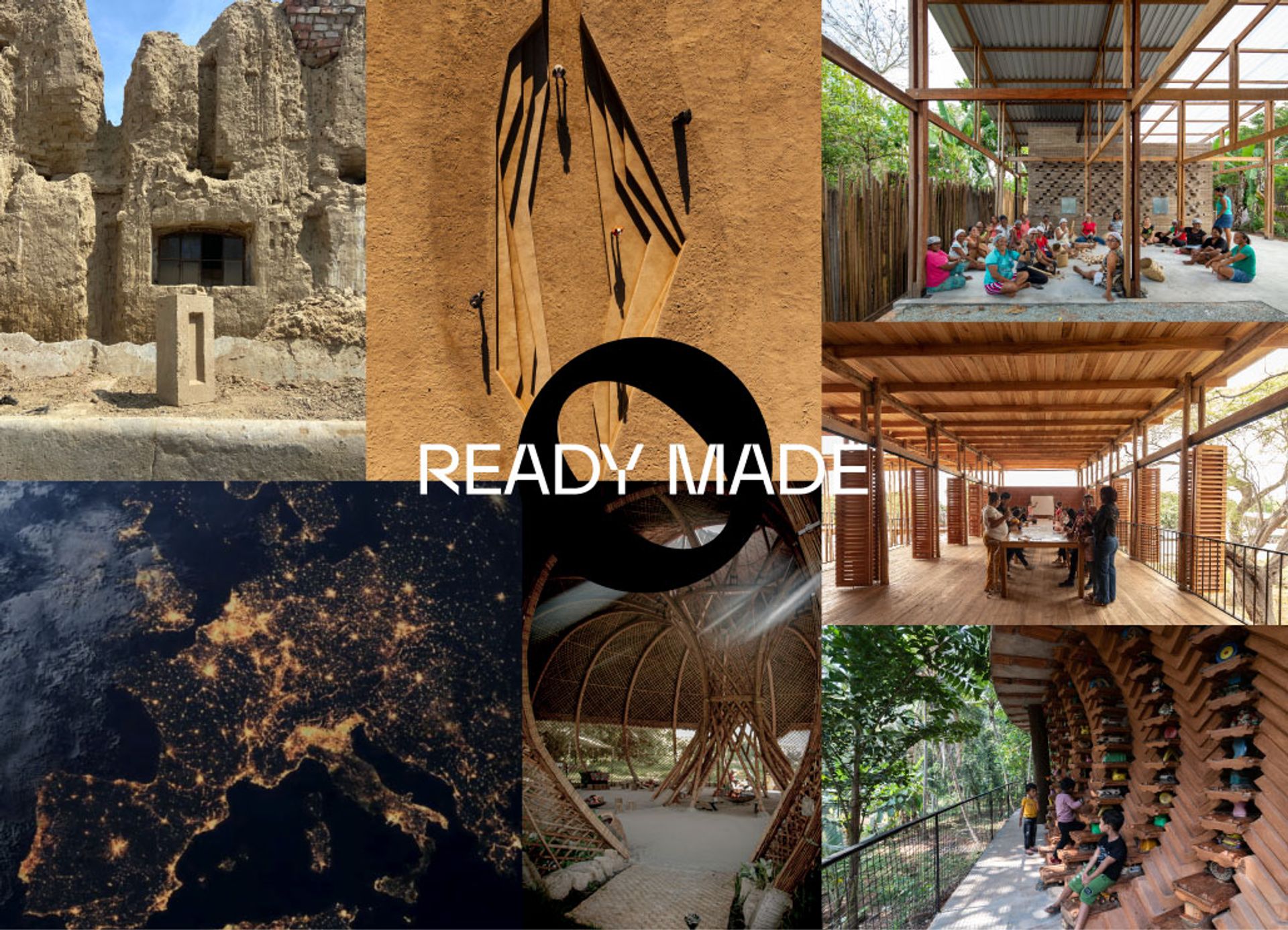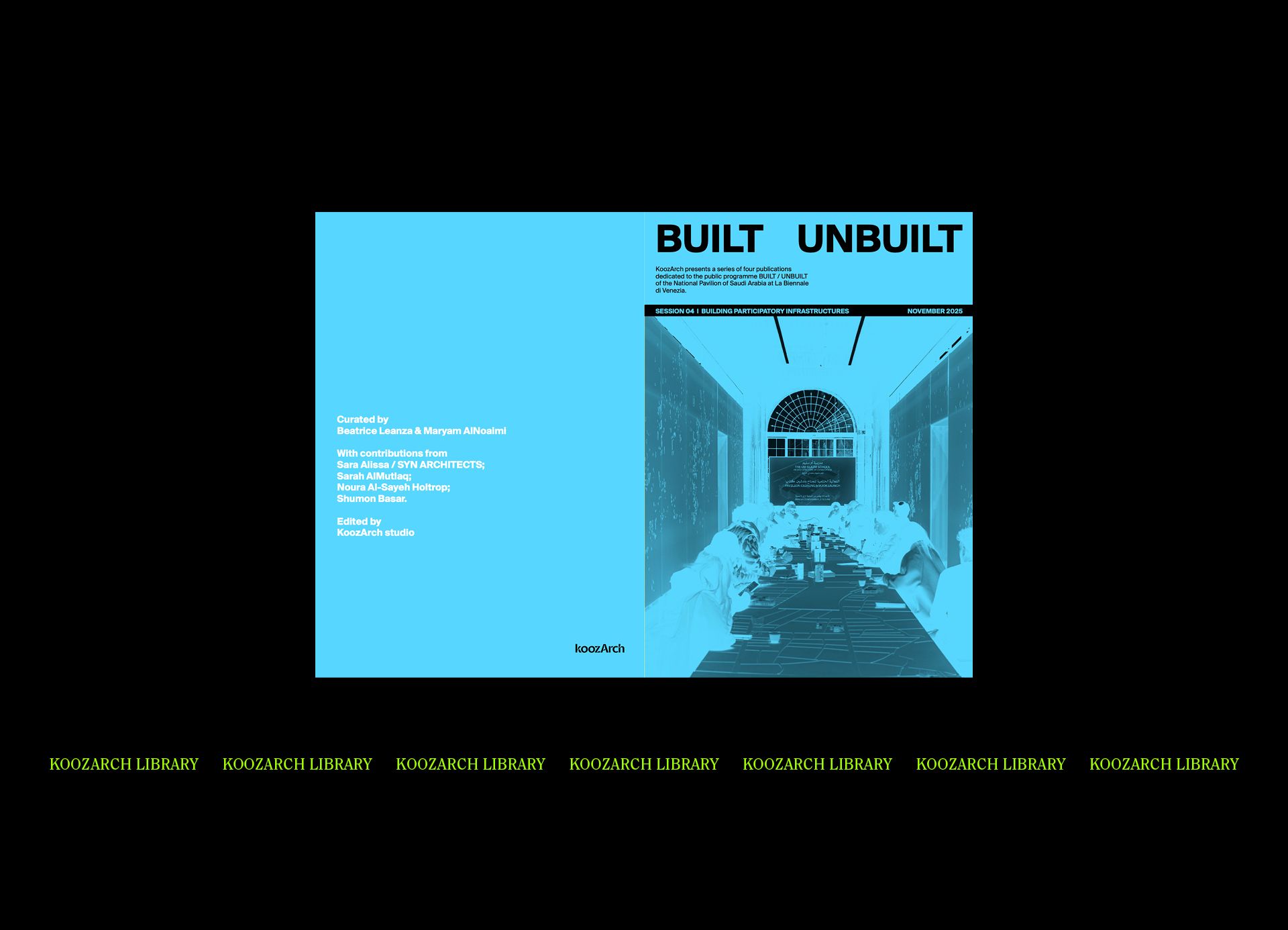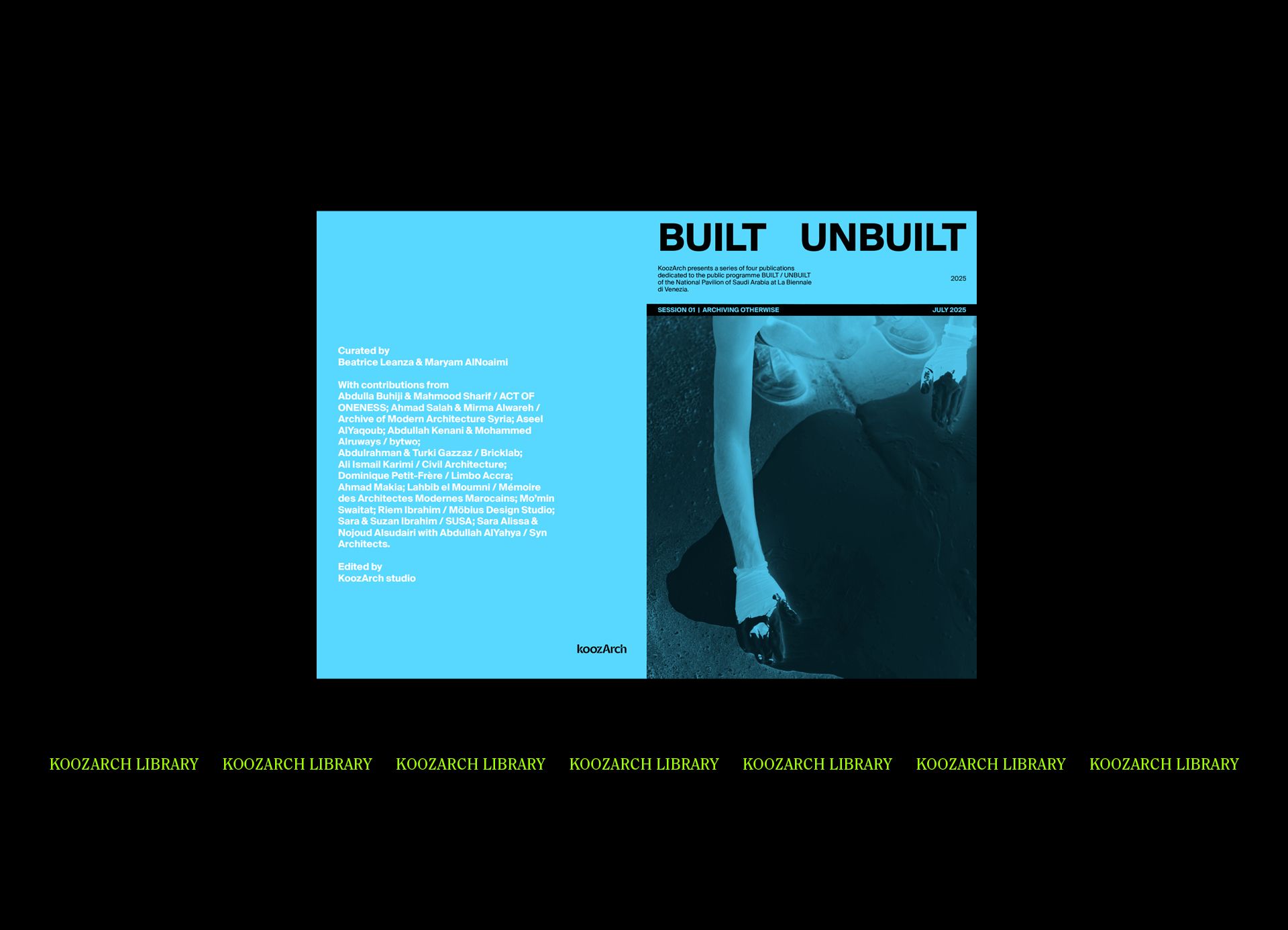How does the South design planetary futures? What do design responses to climate change look like when they are grounded in the aspirations and struggles of those most affected? How does design grapple with radical ecological interdependence in conditions of enduring injustice, everyday uncertainty, and rapid urban change? These are just a few of the questions raised by the Governing through Design research collective for their recent competition “South Designs”. In this interview with Kenny Cupers and Laura Nkula-Wenz, we explore the agenda of the competition and present the six winning proposals who have addressed the above questions through creative, collaborative, and speculative visions.
KOOZ How does the call for projects “South Designs” sit in relation to the wider agenda of the research collective “Governing through Design” you’re both part of?
LNW | KC “Governing through Design” - funded by the Swiss National Science Foundation - asks how design shapes the world we live in. Against evocations of looming catastrophe and intersecting crises, responses to climate change and political instability are increasingly focused on the possibilities and limitations of design. In other words, politicians, planners, designers, development agencies, and community organizations invest hope in design to foster environments and subjects that can effectively respond to seemingly ever-increasing levels of risk and uncertainty.
Design has increasingly cropped up as an alternative to political decision-making, a way of thinking and doing that promises to solve complex problems by synthesizing forms of knowledge, technical procedures, and aesthetic practices.
Rather than saying that humans have always been designing and always been defined by their own designs, from stone-age tool making to social media, we argue that the environmental agency and governing capacity of design is a relatively recent phenomenon. In the course of the past century or so, design has become a way of doing and knowing that exceeds the bounds of specific disciplines and professions, e.g.architects, industrial designers, planners. And, particularly in the last decades, design has increasingly cropped up as an alternative to political decision-making, a way of thinking and doing that promises to solve complex problems by synthesizing forms of knowledge, technical procedures, and aesthetic practices. The goal of our overarching research project then is, as Anke Gruendel, political theorist and one of our team members puts it, to provide “a diagnosis of the present through design.”
Given the interdisciplinary ambitions of the larger project, we felt the need to move beyond conventional limits of academic research, and at the same time, wanted to focus on global Southern and indigenous voices and actors that continue to be marginalized in debates around design and our planetary future. This stance also reflects the ethos of paying attention to southern epistemologies, which has also been key to the Critical Urbanism program we run as a long-term collaboration between the University of Basel and the University of Cape Town.
KOOZ What prompted the specific call?
LNW | KC Shifts within the overall project provided an opportunity to reallocate some funds. We saw this as a unique chance to support actors and institutions whose ideas and projects tend to be marginalised in current debates about design, climate change and the future of our planet. This also guided the call’s explicit expectation that projects are grounded in the struggles of those disproportionately affected by climate change, that they are genuinely collaborative and that they address a broad public.
Critical voices - many belonging to Southern scholars, activists and organizers - have raised the issue that sustainability and resilience as policy and design goals may ultimately entrench rather than undo political-economic systems of inequality.
KOOZ The brief proposes the South “as indispensable, not as a geographical location, but as an ethos of engagement.” Could you expand on this notion further?
LNW | KC Critical voices - many belonging to Southern scholars, activists and organizers - have raised the issue that sustainability and resilience as policy and design goals may ultimately entrench rather than undo political-economic systems of inequality, and associated regimes of violence and marginalization.
Many well-meaning projects that seek to counter environmental degradation end up being blind to how they actually exacerbate socio-economic inequalities, which are equally unsustainable. Well-resourced institutions in the global North tend to define what solutions to climate change should look like. But very often, policies that are meant to reduce consumption or support a shift to renewable energy actually lead to new forms of dispossession. We thus believe that truly sustainable solutions to planetary crises are those that actually focus on undoing global inequalities.
Very often, policies that are meant to reduce consumption or support a shift to renewable energy actually lead to new forms of dispossession.
With this call for projects, we are interested to see what other solutions and responses might be possible, when they are grounded in the lifeworlds and aspirations of those most affected by climate change: the inhabitants of low-income settlements in flood-prone areas of rapidly growing cities, the indigenous communities subjected to the consequences of resource extraction industries, and so on.
To help us in making with the difficult decision of picking the final six projects out of the vast pool of urgent and certainly deserving projects, we engaged a group of Southern scholars from urban studies, environmental science, and design fields to help us draft the call, think through the criteria for selection, and to evaluate the proposals.
KOOZ The question at the core of the call for projects is “How does the South design planetary futures?” Why is it fundamental to raise such a question today?
LNW | KC Massive research funding today goes to projects of sustainable development, and understandably, a large part of these projects focuses on the behavior of the biggest Western CO2 emitters—the United States and Europe. And of course it is crucial to study and change the lifestyle and behavior of middle-class consumers and environmental policies in these regions. Nevertheless, with this project we were interested in a majority world perspective on issues of climate crisis and planetary futures. Other than reducing global consumption and energy expenditure using Western standards, what ideas might be developed or already exist that do not make it into current discussions about environmental policy and the role of design? Also, how might a Southern view shift these debates or trouble established thinking around design as a mode of doing and knowing?
We wanted to ask what if Southern actors are not merely the recipient but the producers of experimental ideas and speculative projects for planetary futures?
KOOZ In the brief you introduce the ambiguity at the base of the notion of “resilience”, seen as the “end goal that may entrench rather than undo political economic systems of violence and marginalization.” What is the potential of collaborative design practices to find a balance in this ambiguity?
LNW | KC The global (research and project) funding landscape tends to be organized in a way that Northern/Western institutions produce large-scale, non-localised, policy solutions while the Global South is used as a site for experimenting with these ideas.
We wanted to disrupt this unilateral logic, and ask what if Southern actors are not merely the recipient but the producers of experimental ideas and speculative projects for planetary futures? We are therefore looking for projects that are grounded in actual experiences and communities in the Global South, but at the same time speak to planetary environmental challenges. We want to support Southern projects that cannot be dismissed as just “local” initiatives, and therefore irrelevant in the global fight against global warming, but think about what climate and social justice at a global level might look like.
KOOZ How have the winning entries successfully interpreted and explored “what resilience means when it is mobilized from the South”?
LNW | KC We received 143 applications to our call, with an incredible variety in terms of sites, ideas, and collaborators. Most of them work in teams and with varying degrees of involvement by local communities. Many of these projects are urgent and should be funded. However, since we can only fund six projects, we prioritized those that we think most comprehensively addressed the questions we posed in the call and that are grounded in particular sites and community initiatives.
We hope that these speculative and creative projects might compliment and even tweak the dominant model of sustainability research and development aid funding.
KOOZ Six proposals will be funded with a grant whilst the team will be supported by a network of peer reviews, how do you envision these projects developing in the coming years? What are your aspirations for these designs?
LNW | KC Over the next two years, as these projects are implemented, we will work with our scientific networks to establish a support system that can think with and help guide the selected projects. A large component of this will also be peer support as we believe the selected projects will also benefit from directly engaging with one another in a South-South exchange.
Our aspiration is that these projects will not only achieve the outcomes set out by the project teams themselves, but also that they can inspire other practitioners to develop new ways of thinking about our planet and its possible futures. Ultimately, we hope that these speculative and creative projects might compliment and even tweak the dominant model of sustainability research and development aid funding.
Winning projects
Re-imagi(nations)
Re-imagi(nations) questions forms of existence and living experienced by migrant communities in Morocco for their speculative potentials in order to collectively imagine solutions to current pressing issues on social justice, radical ecology and indigenous knowledge.
Re-imagi(nations) revolves around two core ideas : the will to include the narratives, experiences and cultural identities of migrant communities as part of the Black cultural diaspora in an attempt to remediate for a lack of recognition and scientific literature on the subject ; secondly to stand for the acknowledgment of minority cultural practices in a logic of questioning the traditional schemes of thought and power.
These questions will be collaboratively debated with members of the migrant communities in Tangier and Oujda within the framework of critical creative thinking and artistic workshops. Re-imagi(nations) will be showcased in 2023 in a public exhibition at Mahal Art Space, founded by Nouha Ben Yebdri in Tangier.
Team members: Nouha ben Yedri, Maud Houssais, Reuben Yemoh Odoi
Rural Futurism
Rural Futurisms will explore how the community of Makgobistad design planetary futures through storytelling, work songs, oral histories, and an engagement with new and old design-making technologies. The project attempts to not only archive the process of the cultivation and creative compositions generated by clay but cross-examine it with radical living materials such as mycelium-reinforced clay. In the spirit of cross-generational dialogue, intercultural exchange and community collaboration and cohesion, this project takes as its starting point the ‘hidden transcripts’ and indigenous knowledge systems of the elderly community of Makgobistad, alongside the contemporaneous expertise of millennial designers through mycelium. We envision that this approach will shed light not only on how old materials can be used in new ways, or new materials can be used in old ways - but most importantly the process of making materials for our collective futures. As a collective, we believe that beyond the rural materiality is a rural conceptualization of climate responsive ideas. We are interested in the rural dialogue (through the seTswana language and cosmology) regarding material, making and climate change.
Team members: Lesego Bantsheng, Siyabonga Njica, Ruth Manda, Awande Buthelezi
Occupations as practices of south design
This project brings together scholars, social movements, housing activists, and legal and advocacy-based organizations into a collaborative engagement. Guided by a common commitment to urban housing justice we focus on two building occupations in central Cape Town - Cissie Gool House and Ahmed Kathrada House - examining these spaces as design interventions into the fabric of the city that open toward more just futures. We consider occupations not merely as expressions of housing injustice but as integral features of urban landscapes, examining these as practices of urban transgression and design. We pay attention to these as sites of both immediate struggle and transformative possibilities contributing to reimagining and redesigning present and future cities.
Team members: Karen Hendricks, Bevil Lucas, Adi Kumar, Buhle Booi, Kyla Hazell, Andreas Scheba, Suraya Scheba
Caribe Mutuo
Caribe Mutuo is a convivial project for dialogue and collective action based on common cultural doings in the hydric territories of the Ciénaga del Guájaro, located in the Colombian Caribbean. The project is a joint proposal between Cayena—Art and Culture Department of Universidad del Norte, coopia, MUPAPA—Museo Paleontológico de La Peña and Zuloark.
The project intends to acknowledge, share, connect and strengthen processes of r-existence and mutual aid around diverse autonomous cultural doings of collectives and individuals in the territory. We seek to compose a cultural platform that prefigures multiple presents, built through common potencies, as that integral flow of practices, affections, things and places that bring us together from the ethics of reciprocity, coexistence of differences, solidarity and mutual aid through the collective construction of a planchón (floating platform/infrastructure) for the circulation of cultural processes open to trans-formations and appropriation by the communities.
Team members: Cayena - Art and Culture Department of the Universidad del Norte, Coopia, MUPAPA - Museo Paleontológico de La Peña, Zuloark
Designing with the Planet. Connecting riparian zones of struggle in São Paulo, Jakarta, and Berlin
Urban rivers in cities like Jakarta, São Paulo, and Berlin have long functioned as arteries for transporting extracted resources, becoming open veins of industrial pollution. In this way, canalised waterways and their aquatic ecosystems evidence the toxic legacies of urban expansion, coloniality, and capitalist extraction. Meanwhile, collectives in these cities are experimenting with novel ways to live with the degraded urban waters by generating new knowledges and devices for “planetary healing” (Escobar, 2022). However, self-organised urban experiments tend to be precarious, often operating in isolation and with scarce material resources.
To overcome these issues, our project aims to build mutual learning and mutual aid between three urban riparian zones of struggle. A new self-organised infrastructure is co-designed to channel practical knowledge on water quality testing devices from Labtek Apung in Jakarta; counter-mapping and visualising colonial legacies from Ground Atlas in São Paulo, and; experimental forms of multispecies cohabitation at Floating University Berlin.
Team members: an international collective of labs, activists, designers, researchers, sites of struggle, and projects in Berlin, Jakarta, and São Paulo.
Grounding Speculative Visions of the Great Green Wall in Sudan
Drawing on the implementation of the Great Green Wall project in Gadarif state in Sudan as a case-study, this project co-designs a speculative interface that visualises the impacts of community-led restoration and development choices. The Great Green Wall (GGW) in the Sahel region of Africa is a flagship international programme to prevent and reverse desertification. The conception of the GGW ignores the agricultural and pastoralist traditions of the Sahel that have long created forests and managed soil in sustainable and resilient ways. The planned GGW Accelerator will provide seed money for development projects, social entreprises, and climate change adaptation, but lacks mechanisms to coordinate with locals on the ground.Rather, remote-sensing based simulations will underpin the allocation of resources via the Accelerator. In this project, we will reimagine digital simulation design to better incorporate the rich plurality of knowledges already existing in the region.
Team members: Abdelhafiz Mohamed Adam, Connor Cook, Alexa Hagerty, Siri Lamoureaux, Meredith Root-Bernstein, Hussein Sulieman
Bio
Kenny Cupers is Professor of Architectural History and Urban Studies and Head of the Urban Studies Division at the University of Basel. His research focuses on the role of housing in urban and state transformation, the epistemology and geopolitics of modernism, and the power and aesthetics of infrastructure. His publications include What is Critical Urbanism? (2022), the award-winning The Social Project: Housing Postwar France (2014), Coloniality of Infrastructure (e-Flux Architecture, 2021), Architecture and Neoliberalism from the 1960s to the Present (2020), Use Matters: An Alternative History of Architecture (2013), Spaces of Uncertainty (2002) and Spaces of Uncertainty: Berlin Revisited (2018). Cupers leads the SNF-funded project, How Infrastructure Shaped Territory in Africa, and co-directs (with Orit Halpern and Claudia Mareis) the Sinergia project Governing through Design: An Interdisciplinary Phenomenon. Through these collaborative projects, he is developing a research agenda centered on infrastructure and environmental politics—with a particular interest in African struggles for decolonization.
Laura Nkula-Wenz is a human geographer by training with a passion for postcolonial urban theory, African urbanism, new pedagogies of the city, and public culture. She is a lecturer at the African Centre for Cities, University of Cape Town and a Postdoctoral Fellow on the SNSF-funded Sinergia project Governing through Design: An Interdisciplinary Phenomenon. She holds a PhD in Geography from the University of Muenster, Germany and co-edited What is Critical Urbanism? (2022). Her research has also been published in edited collections and high-impact journals such as Environment and Planning A & C, Habitat International and Cultural Trends. She is part of the editorial committee at Gateways – Journal for Community Research and Engagement and committed to leveraging transdisciplinary collaborations beyond academia for just urban futures.
Federica Zambeletti is the founder and managing director of KoozArch. She is an architect, researcher and digital curator whose interests lie at the intersection between art, architecture and regenerative practices. In 2015 Federica founded KoozArch with the ambition of creating a space where to research, explore and discuss architecture beyond the limits of its built form. Parallel to her work at KoozArch, Federica is Architect at the architecture studio UNA and researcher at the non-profit agency for change UNLESS where she is project manager of the research "Antarctic Resolution". Federica is an Architectural Association School of Architecture in London alumni.





